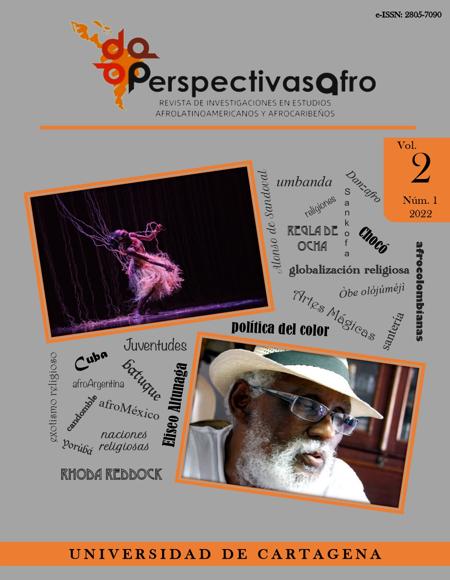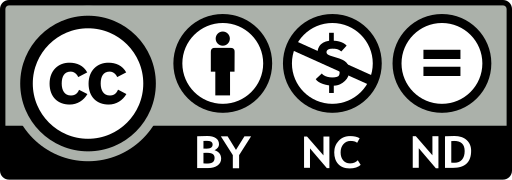La articulación de clase, raza y género en el Caribe anglófono: los aportes de Rhoda Reddock
The Articulation of Class, Race and Gender in the Anglophone Caribbean: the Contributions of Rhoda Reddock
Contenido principal del artículo
Resumen
Rhoda Reddock es una de las intelectuales feministas más relevantes del Caribe anglófono. Partiendo de la larga tradición de pensamiento radical y marxista heterodoxo del Caribe, sus investigaciones históricas y sociológicas han sido pioneras en el análisis de los procesos de articulación de opresiones de clase, raza y género en la región. En este texto exponemos y debatimos algunos de sus más importantes aportes intelectuales presentes en algunas de sus obras fundamentales.
Palabras clave
Descargas
Datos de publicación
Perfil evaluadores/as N/D
Declaraciones de autoría
Indexado en
- Sociedad académica
- Universidad de Cartagena
- Editorial
- Universidad de Cartagena
Detalles del artículo
Referencias (VER)
Beckford, George. Persistent Poverty: Underdevelopment in Plantation Economies in the Third World. Oxford: Oxford University Press, 1972.
Combahee River Collective. “Manifiesto del Combahee River Collective”. Este puente, mi espalda. Voces de mujeres tercermundistas en los Estados Unidos. Cherríe Moraga y Ana Castillo, eds. San Francisco: ISM Press, 1988 [1977]. 172-175.
Drake, St. Claire. “The Black Diaspora in Pan-African Perspective”. The Black Scholar 7/1 (1975): 4. DOI: https://doi.org/10.1080/00064246.1975.11413763
Green, Cecilia “Caribbean Dependency Theory of the 1970s. A Historical-Materialist-Feminist Revision”. New Caribbean Thought. Brian Meeks y Folke Lindahl, eds. Kingston: University of the West Indies Press, 2001. 24-46.
Konings, P. (1998). “Women Plantation Workers and Economic Crisis in Cameroon”. Women Plantation Workers. International Experiences. Rodha Reddock y Shobita Jain, eds. Oxford: Berg. 151-166. DOI: https://doi.org/10.4324/9781003136132-9
Kurian, R. (1998). “Tamil Women on Sri Lankan Plantations: Labour Control and Patriarchy”. Women Plantation Workers. International Experiences. Rodha Reddock y Shobita Jain, eds. Oxford: Berg. 67-88. DOI: https://doi.org/10.4324/9781003136132-5
Reddock, Rhoda. “Woman and Slavery in the Caribbean: A Feminist Perspective”, Latin American Perspectives 12/ 1 (1985): 63-80. DOI: https://doi.org/10.1177/0094582X8501200104
_____ “Diversity, Difference and Caribbean Feminism: The Challenge of Anti-Racism”. Caribbean Review of Gender Studies 1 (2007): 1-24.
_____ Elma Francois: The NWCSA and the Worker's Struggle for Change in the Caribbean. London: New Beacon, 1988.
Reddock, Rhoda, ed. Interrogating Caribbean Masculinities: Theoretical and Empirical Analyses. Kingston: The University of the West Indies Press, 2004. DOI: https://doi.org/10.37234/NTMYVKIU
Reddock, Rhoda. “Radical Caribbean Social Thought: Races, Class, Identity and the postcolonial nation”. Current Sociology 62/ 4 (2014): 493-511. DOI: https://doi.org/10.1177/0011392114524507
Reddock, Rhoda. Women, Labour & Politics in Trinidad & Tobago. A history. Londres: Zed Books, 1994.
Reddock, Rhoda y Jain, Shobita, eds. Woman Plantation Workers. International Experiencies. Oxford: Berg, 1998.
Shameem, S. (1998). “Migration, Labour and Plantation Women in Fiji: A Historical Perspective”. Women Plantation Workers. International Experiences. Rodha Reddock y Shobita Jain, eds. Oxford: Berg. 49-66. DOI: https://doi.org/10.4324/9781003136132-4
Shirley, Tanya. “Inmaculada”. Poetas del Caribe anglófono. Tomo I, Keith Ellis, Coord. La Habana: Casa de las Américas, 2011. 109.
Truth, Soujourner. “Discurso”. Feminismos negros, Una antología. Mercedes Jabardo, ed. Madrid: Traficantes de Sueños, 2012 [1851]. 62-63.



 PDF
PDF
 FLIP
FLIP






